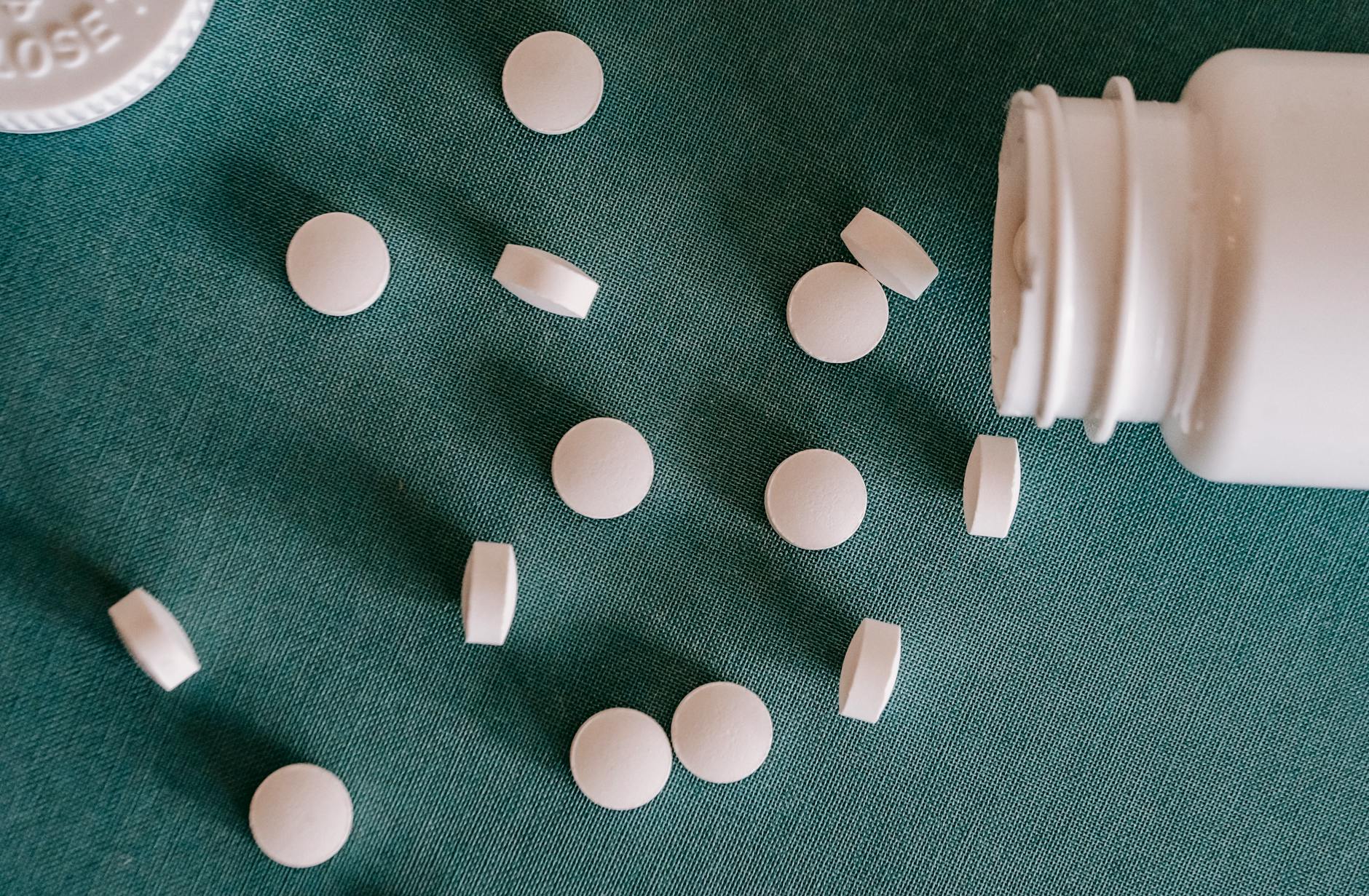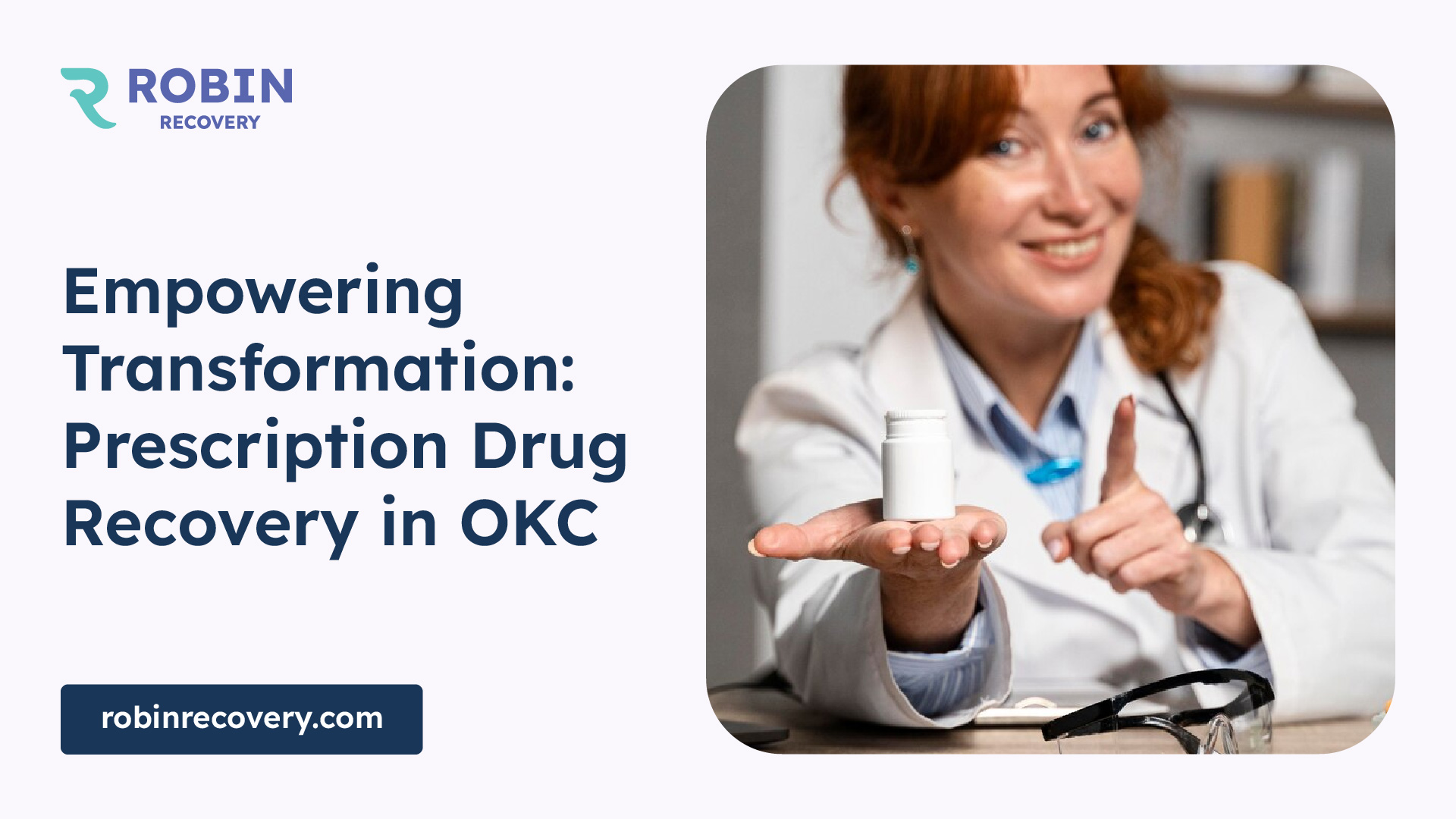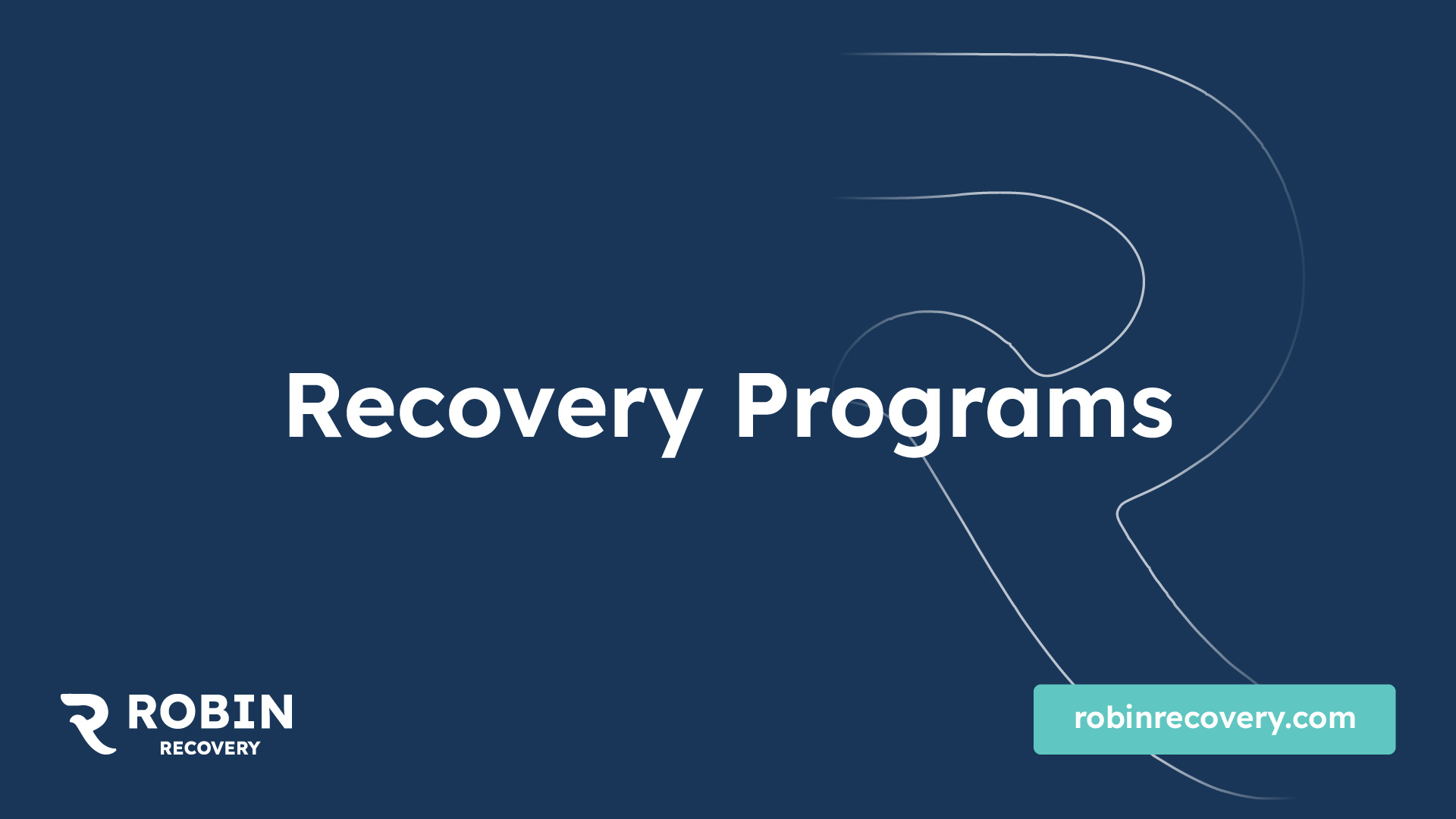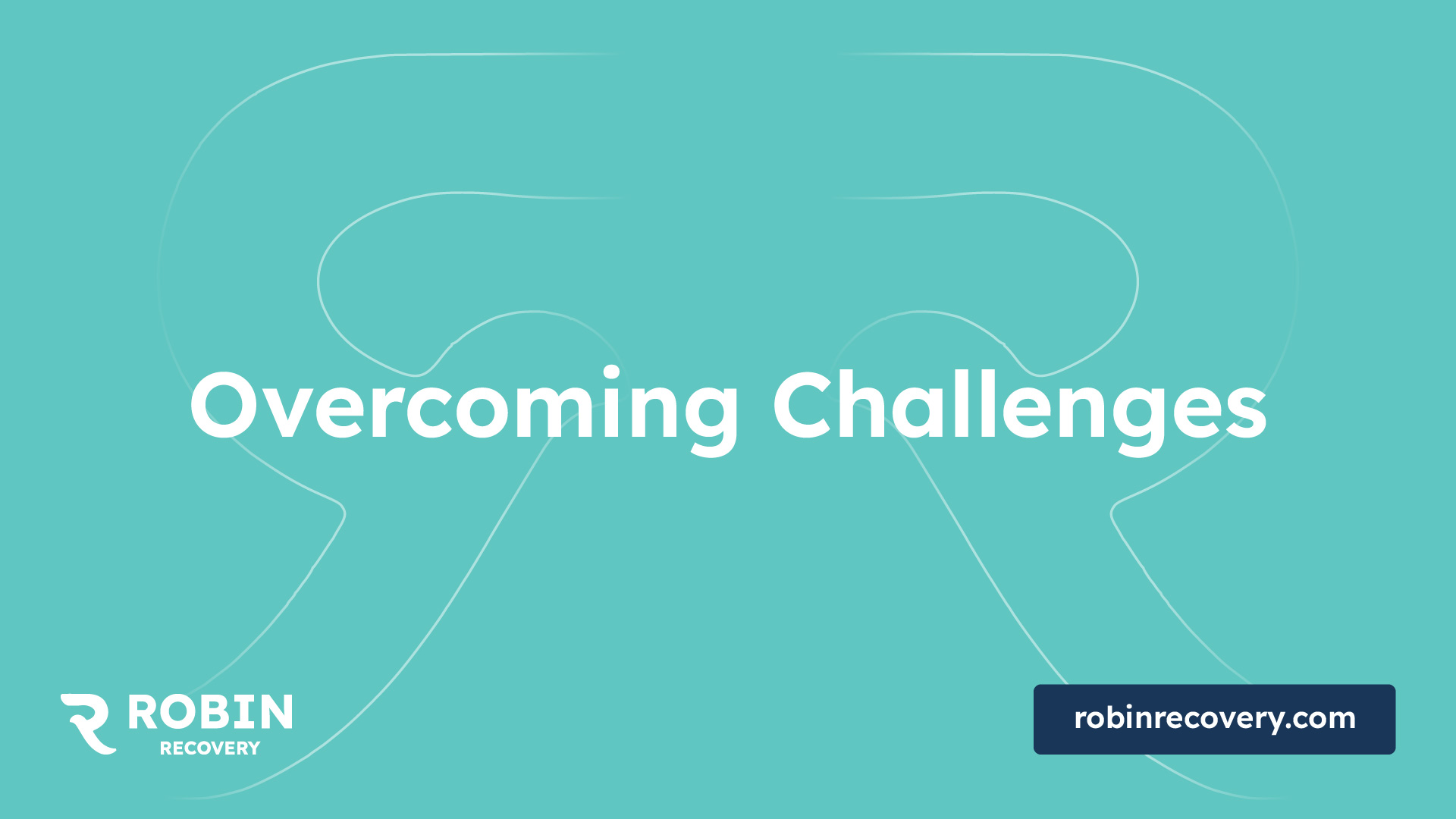Empowering Transformation: Prescription Drug Recovery in OKC


Understanding Addiction Recovery
Addiction recovery is a journey towards overcoming substance abuse and reclaiming a healthy and fulfilling life. It involves a range of interventions and support systems designed to address the physical, psychological, and social aspects of addiction.
What is Addiction Recovery?
Addiction recovery refers to the process of overcoming substance abuse and achieving a state of abstinence or controlled substance use. It is a complex and individualized journey that varies from person to person. According to the National Institute on Drug Abuse, addiction recovery is a long-term process that often requires multiple episodes of treatment and ongoing support [^1^]. The American Psychiatric Association defines addiction recovery as a process of change where individuals improve their health and wellness, live self-directed lives, and strive to reach their full potential [^2^].
Recovery from addiction involves more than just stopping substance use. It encompasses a holistic approach to address the underlying factors contributing to addiction and develop coping mechanisms for a substance-free life. The Substance Abuse and Mental Health Services Administration emphasizes that recovery is a process of change through which individuals improve their health and wellness, live self-directed lives, and strive to reach their full potential [^3^].
The Journey to Recovery
The journey to recovery is unique for each individual, and there is no one-size-fits-all approach. It typically involves several stages, including recognition and acceptance of the addiction, seeking help, undergoing treatment, and sustaining long-term recovery.
The process begins with recognizing the presence of addiction and accepting the need for help. This can be a challenging step, as denial and stigma often accompany addiction. Once individuals acknowledge their addiction, they can seek appropriate treatment and support.
Treatment options for addiction recovery may include inpatient treatment and outpatient programs. Inpatient treatment involves residing in a treatment facility for a designated period, providing a structured and supportive environment for recovery. Outpatient programs, on the other hand, allow individuals to receive treatment while living at home and maintaining their daily responsibilities.
Throughout the recovery journey, support systems play a vital role. Family support can provide a foundation of understanding, love, and encouragement. Peer support groups, such as Alcoholics Anonymous or Narcotics Anonymous, offer a sense of community and shared experiences, allowing individuals to connect with others facing similar challenges.
Overcoming challenges is an integral part of addiction recovery. Individuals must develop strategies to deal with triggers, which are situations, emotions, or people that may lead to substance use. Relapse prevention techniques, such as identifying triggers, developing coping skills, and creating a relapse prevention plan, are crucial in maintaining long-term recovery.
For those seeking help in Oklahoma City, various resources and treatment options are available. These include counseling services, support groups, and specialized treatment centers. It is essential to reach out to these resources to receive the support needed on the path to recovery.
Understanding addiction recovery and embarking on the journey towards a substance-free life is a courageous step. With the right support, treatment, and determination, individuals can overcome addiction and create a future filled with health, well-being, and personal growth.
Note: For more information on staying connected to recovery, stress awareness in recovery, the promises of recovery, and gratitude in recovery, please refer to our articles on staying connected to recovery, stress awareness in recovery, the promises of recovery, and gratitude in recovery.
Prescription Drug Addiction
Prescription drug addiction is a growing concern in today's society. It refers to the compulsive and harmful use of prescription medications, leading to negative consequences for the individual's physical and mental health, relationships, and overall well-being. Understanding the impact of prescription drug addiction and recognizing the signs and symptoms are crucial steps towards recovery.
Impact of Prescription Drug Addiction
Prescription drug addiction can have a profound impact on various aspects of an individual's life. The misuse and abuse of prescription drugs can lead to serious health consequences, including overdose and death. According to the National Institute on Drug Abuse, prescription drug misuse and abuse contribute to a significant number of emergency department visits and overdose deaths in the United States [^1^].
The impact of prescription drug addiction extends beyond physical health. It can strain relationships with family members, friends, and colleagues. It may also lead to financial difficulties, legal issues, and a decline in overall productivity and functioning. Recognizing the far-reaching consequences of prescription drug addiction is essential in motivating individuals to seek help and begin the journey of recovery.
Signs and Symptoms
Identifying the signs and symptoms of prescription drug addiction is crucial for early intervention and effective treatment. The specific signs and symptoms can vary depending on the type of prescription drug being abused. Commonly misused prescription drugs include opioids, sedatives, and stimulants [^5^].
Some general signs and symptoms of prescription drug addiction may include:
- Physical symptoms: drowsiness, changes in sleep patterns, poor coordination, slurred speech, constricted or dilated pupils, weight loss or gain.
- Behavioral changes: increased secrecy and isolation, changes in social activities and hobbies, neglecting responsibilities, engaging in risky behaviors.
- Psychological symptoms: mood swings, irritability, anxiety, depression, poor concentration, memory problems.
- Relationship problems: conflicts with family members, friends, and colleagues, strained relationships due to drug-seeking behaviors and deception.
It's important to note that these signs and symptoms can also be indicative of other underlying medical or mental health conditions. A comprehensive assessment by a healthcare professional is necessary to determine the presence of prescription drug addiction.
If you or someone you know is experiencing any of these signs and symptoms, seeking professional help is vital. Treatment options and resources are available to support individuals on their journey to recovery. For more information on recovery programs and support systems, continue reading the following sections.
Remember, recovery from prescription drug addiction is possible with the right support, treatment, and commitment to change.

Recovery Programs
When it comes to prescription drug addiction recovery, there are different programs available to support individuals on their journey to sobriety. Two common types of recovery programs are inpatient treatment and outpatient programs.
Inpatient Treatment
Inpatient treatment, also known as residential treatment, involves staying at a specialized facility for a designated period of time. This type of program provides a structured and supportive environment for individuals seeking recovery from prescription drug addiction.
During inpatient treatment, individuals receive 24/7 care and support from a dedicated team of healthcare professionals. The program typically includes a combination of medical, therapeutic, and counseling services to address the physical, psychological, and emotional aspects of addiction recovery.
Inpatient treatment offers several advantages, such as:
- Intensive Support: Being in a residential setting allows individuals to focus solely on their recovery without the distractions and triggers of the outside world.
- Structured Environment: Inpatient programs provide a structured daily schedule that includes therapy sessions, group activities, and other therapeutic interventions.
- Peer Support: Individuals have the opportunity to connect and share experiences with others who are also on the path to recovery.
It's important to note that the duration of inpatient treatment can vary based on individual needs and the severity of the addiction. Some programs may last a few weeks, while others may span several months. The decision on the appropriate length of stay is typically made by the healthcare professionals based on the individual's progress and treatment goals.
Outpatient Programs
Outpatient programs offer a more flexible approach to addiction recovery, allowing individuals to receive treatment while living at home and continuing with their daily responsibilities. These programs are ideal for individuals who have a strong support system in place and are able to manage their recovery outside of a residential setting.
Outpatient programs provide various levels of care, ranging from partial hospitalization to intensive outpatient programs. The frequency and duration of treatment sessions vary based on the individual's needs and the program's structure.
Outpatient programs offer several benefits, including:
- Flexibility: Individuals can attend treatment sessions while still fulfilling their work, school, or family commitments.
- Continuity of Care: Outpatient programs often provide ongoing support and counseling, allowing individuals to stay connected to their recovery journey.
- Integration into Daily Life: By participating in treatment while living at home, individuals have the opportunity to apply the skills learned in therapy to real-life situations.
It's important to note that the suitability of outpatient programs may vary depending on the individual's level of addiction, support system, and commitment to recovery. A comprehensive assessment by a healthcare professional can help determine the most appropriate level of care.
Recovery from prescription drug addiction requires personalized care and support. Whether an individual chooses inpatient treatment or an outpatient program, the key is finding a program that aligns with their needs and provides the necessary tools for a successful recovery. For more information on staying connected to recovery and other aspects of addiction recovery, explore our articles on staying connected to recovery, stress awareness in recovery, the promises of recovery, and gratitude in recovery.
Support Systems
When it comes to addiction recovery, having a strong support system is crucial. Two vital components of a support system are family support and peer support groups. These resources provide individuals with the encouragement, understanding, and guidance needed throughout their recovery journey.
Family Support
Family support plays a significant role in the recovery process. Loved ones can offer emotional support, understanding, and encouragement to those seeking recovery from prescription drug addiction. Family members can help create a stable and supportive environment, which is essential for long-term recovery.
Family therapy is a valuable tool in addiction treatment. It aims to improve communication, rebuild trust, and strengthen relationships within the family unit. Therapists trained in family therapy techniques work with both the individual in recovery and their family members to address underlying issues and promote healing [1]. Seeking professional help through family therapy can provide a safe space for open dialogue and foster a supportive environment for the recovery process.
If you or someone you know is struggling with prescription drug addiction, it's important to educate family members about addiction and recovery. Resources such as helplines and support groups can provide information, guidance, and access to treatment options [2]. Family support can make a significant difference in the success of an individual's recovery journey.
Peer Support Groups
In addition to family support, peer support groups are an invaluable resource for individuals in recovery from prescription drug addiction. These groups provide a safe and non-judgmental environment where individuals can connect with others who have similar experiences and challenges.
Peer support groups, such as Narcotics Anonymous (NA) and SMART Recovery, offer a sense of belonging and understanding. Participants have the opportunity to share their struggles, successes, and coping strategies, all while receiving support and encouragement from others who have walked a similar path. These groups follow various approaches and philosophies, allowing individuals to find the one that best suits their needs.
Attending peer support group meetings can help individuals build a network of sober connections, gain insights from those who have successfully maintained their recovery, and learn new strategies for staying on the path to sobriety. It is important to remember that peer support groups are not a substitute for professional treatment, but rather a valuable supplement to it.
By utilizing both family support and peer support groups, individuals in recovery can surround themselves with a network of understanding and compassionate individuals who provide guidance, motivation, and accountability. These support systems can be instrumental in maintaining long-term recovery and achieving a healthier, drug-free life.
Remember, addiction recovery is a journey that requires ongoing effort and support. Staying connected to recovery resources, managing stress, and practicing gratitude are additional strategies that can contribute to a successful recovery process. For more information on these topics, check out our articles on staying connected to recovery, stress awareness in recovery, and gratitude in recovery.

Overcoming Challenges
When it comes to addiction recovery, there are various challenges individuals may face along their journey. Two key challenges that arise during the recovery process are dealing with triggers and implementing relapse prevention techniques.
Dealing with Triggers
Triggers are people, places, emotions, or situations that can evoke cravings or thoughts of substance use, potentially posing a risk to recovery progress. Identifying and effectively managing triggers is essential in maintaining sobriety and preventing relapse. It's important to remember that triggers can differ from person to person, as everyone's addiction experience is unique.
To deal with triggers, individuals in recovery can employ several strategies:
- Identify Triggers: Recognizing and understanding personal triggers is the first step. This can be done through self-reflection, therapy, or support group discussions. It's crucial to pinpoint specific triggers to develop effective coping mechanisms.
- Develop Coping Skills: Once triggers are identified, individuals can work on developing healthy coping skills to manage them. Techniques such as deep breathing exercises, mindfulness meditation, engaging in hobbies, or reaching out to a support network can help divert attention from triggers and reduce their influence.
- Modify Environments: If possible, modifying the environment to minimize exposure to triggers can be helpful. For example, avoiding places or events associated with substance use or adjusting social circles can reduce the likelihood of encountering triggers.
- Seek Support: Building a strong support system is instrumental in dealing with triggers. Connecting with others who have experienced similar challenges can provide empathy, guidance, and encouragement. Family support, therapy, and participation in support groups can all contribute to staying connected to recovery [3].
Relapse Prevention Techniques
Relapse prevention techniques play a vital role in maintaining long-term recovery. These strategies help individuals recognize and address the factors that could potentially lead to relapse. By implementing effective relapse prevention techniques, individuals can enhance their ability to navigate challenges and maintain sobriety.
Some commonly used relapse prevention techniques include:
- Self-Care: Prioritizing self-care is crucial in preventing relapse. Engaging in activities that promote physical and mental well-being, such as regular exercise, healthy eating, and stress management techniques like meditation or yoga, can contribute to overall stability in recovery.
- Creating a Supportive Network: Surrounding oneself with a strong support system is essential in relapse prevention. Family, friends, support groups, or mentors can offer encouragement, accountability, and guidance during challenging times.
- Developing Coping Skills: Building healthy coping mechanisms is crucial in managing cravings and stress. Learning positive ways to cope with difficult emotions, such as seeking therapy, engaging in creative outlets, or practicing relaxation techniques, can help individuals navigate triggers and prevent relapse.
- Avoiding High-Risk Situations: Identifying and avoiding high-risk situations that may increase vulnerability to relapse is key. This may involve steering clear of places, people, or activities associated with substance use.
- Having a Relapse Prevention Plan: Developing a personalized relapse prevention plan can provide a roadmap for staying on track. This plan may include strategies for managing potential challenges, identifying warning signs of relapse, and outlining steps to take in case of a relapse.
For additional information on relapse prevention techniques, resources are available at the National Institute on Drug Abuse, Substance Abuse and Mental Health Services Administration, SMART Recovery, Addiction Center, and Alcohol Rehab Guide.
By being aware of triggers, developing effective coping mechanisms, and implementing relapse prevention techniques, individuals can enhance their ability to overcome challenges and maintain long-term recovery from prescription drug addiction.
Seeking Help in OKC
When it comes to seeking help for prescription drug addiction in Oklahoma City (OKC), there are various resources and treatment options available to support individuals on their journey to recovery.
Resources in Oklahoma City
OKC offers a range of resources for individuals seeking assistance with prescription drug addiction. These resources include addiction treatment centers, support groups, and counseling services. These organizations are dedicated to providing comprehensive care and support to those in need.
It is important to reach out to these resources to explore the available options and find the support that best suits your needs. These resources can provide guidance, education, and personalized treatment plans to help individuals overcome addiction and achieve long-term recovery.
Treatment Options
In Oklahoma City, there are different treatment options available for individuals seeking help with prescription drug addiction. These options include both inpatient and outpatient programs.
Inpatient Treatment
Inpatient treatment, also known as residential treatment, provides a structured and supportive environment for individuals to focus on their recovery. This type of treatment involves residing at a treatment facility for a specified period. Inpatient treatment offers intensive therapy, counseling, and medical supervision to address the physical, emotional, and psychological aspects of addiction.
Outpatient Programs
Outpatient programs allow individuals to receive treatment while living at home and continuing with their daily routines. These programs offer flexibility and can be beneficial for individuals who have responsibilities or obligations that prevent them from attending inpatient treatment. Outpatient treatment typically includes counseling, therapy sessions, and support group meetings. It provides individuals with the tools and support they need to manage their recovery while still being able to fulfill their obligations.
The choice between inpatient and outpatient treatment depends on factors such as the severity of addiction, personal circumstances, and the recommendations of healthcare professionals. It is important to consult with addiction specialists or treatment centers to determine the most appropriate treatment option for individual needs.
Remember, recovery is a journey, and seeking help is the first step towards a healthier and happier life. By utilizing the resources and treatment options available in Oklahoma City, individuals can access the support they need to overcome prescription drug addiction and embark on a path of long-term recovery.
For more information on staying connected to recovery and managing stress during the recovery process, check out our articles on staying connected to recovery and stress awareness in recovery. Remember, there is hope, and recovery is possible.
